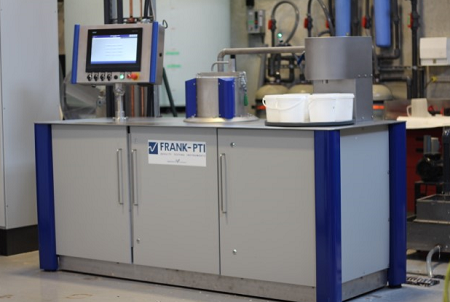Innovation
Through a joint venture agreement with Licella Fibre Fuels, Canfor Pulp continues to explore the potential to use unique technology developed by Licella to convert waste from kraft pulp mill production processes into a low-cost biocrude oil that could be refined into next-generation biofuels and biochemicals. In 2017, our work focused on feedstock preparation, bio-oil quality improvement, and carbon reclamation from processing waters. In April, Canfor Pulp received a $13-million non-repayable contribution through Sustainable Development Technology Canada (SDTC) to support the project. SDTC is a federal government initiative to help Canadian companies bring ground-breaking clean technologies to market.
Canfor Pulp has always enjoyed a fibre advantage. Our high-strength pulp is produced from native tree species in British Columbia’s interior, mainly white spruce, lodgepole pine and sub-alpine fir. These species thrive in the extreme climate and naturally develop long, slender and thin-walled cellulose fibres with high tensile strength. This makes them especially valuable for high-quality, lightweight printing papers, wet laid non-woven products, premium tissue, thin specialty papers, electrical grades and laminates. Our modern pulp manufacturing processes ensure we deliver the high-quality premium reinforcement pulp (PRP) to the marketplace.
The Canfor Pulp Innovation (CPI) research centre supports the highly technical product applications in which our pulps are used. Its open innovation approach takes challenges presented by our mills and customers and invites contractors, suppliers, researchers and other partners to offer solutions. Our network includes world-class consultants in low-consistency refining and tissue quality; research organizations dedicated to the development of next-generation fibre measurement and fibre products; and university researchers from across Canada and around the world.

Using modern technology, like this new refiner at the Canfor Pulp Innovation Centre, our refining experts work directly with customers to optimize fibre properties and reduce their energy consumption.
CPI provides sophisticated technical support to our mills as they continually improve their operations, and also delivers direct assistance to customers so they can take maximum advantage of our premium quality pulps for product improvement and to reduce costs. Through collaborative interactions with research partners, CPI can advise new and existing customers on the best way to use our pulps in a wide range of fibre-based specialty products including tissue and fibre cement.
Since global customers are producing increasingly sophisticated end-products, they need more detailed knowledge about the raw materials and expected performance. Our Mihari initiative, a suite of leading-edge technologies, enhances our quality assurance, and supports the need for more detailed knowledge about the raw materials and their performance.
The Process Quality Vision system we implemented in 2015 at our Intercontinental and Northwood pulp mills continues to improve quality control. The system identifies dirt and shives in the finished pulp, in real time, so we can ensure the pulp delivered to customers meets our high standards. Canfor Pulp customers welcomed this innovation because many are producing increasingly sophisticated products, and depend on high-quality, clean pulps. A year after it was installed, the number of dirt complaints from our Prince George Intercontinental pulp mill dropped to two from more than 15. We were the first pulp manufacturer to use this kind of system to inspect 100% of the pulp shipped from a mill.